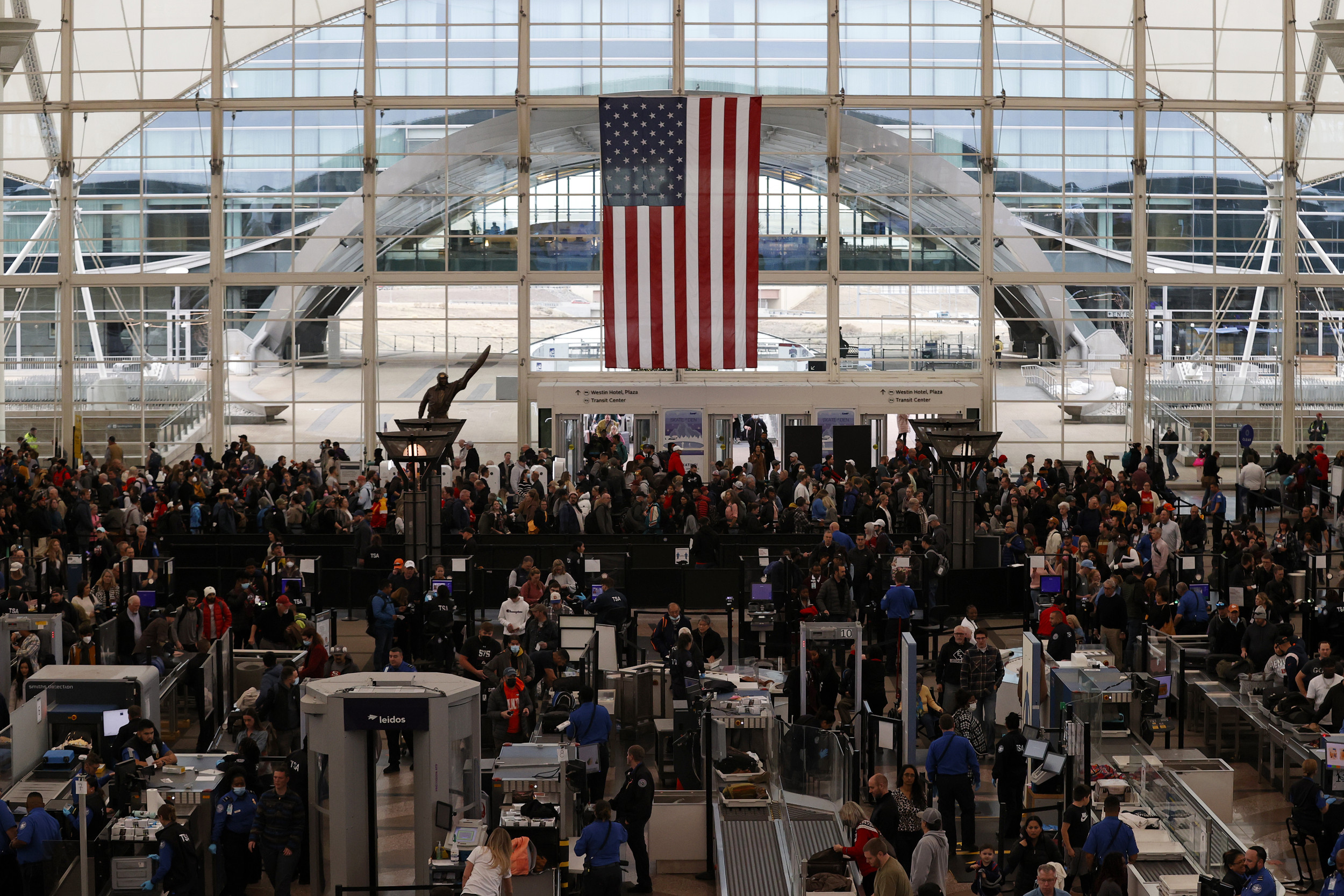
Tourists from countries significantly hit by President Donald Trump‘s trade tariffs are booking fewer trips to the U.S., according to data collected by the hotel search site Trivago.
The data showed a double-digit percentage drop in the number of travelers from Japan, Canada and Mexico opting to visit the U.S. since the president announced his tariffs.
Newsweek has contacted Trivago outside regular hours for comment via email.
Why It Matters
Earlier this month, the World Travel & Tourism Council (WTTC) projected that visitor spending in the U.S. would fall from $181 billion in 2024 to less than $169 billion because of a decline in “international traveler confidence.”
Travelers from across the globe have faced increased scrutiny under the Trump administration’s tighter border controls and immigration policies, and a growing number of countries have issued travel warnings for the U.S.
Aaron M. Sprecher/AP
What To Know
In February, Trump announced tariffs of 25 percent on Canada and Mexico. He later announced a 25 percent tax on imported cars, auto parts, steel and aluminum exports, which he followed with an April announcement of a 10 percent “baseline” tariff on almost all U.S. imports, affecting major trading partners such as Japan.
Since then, travelers from Canada, Mexico and Japan have been booking fewer trips to the U.S., according to Trivago’s data, which was shared with PA Media.
Travelers from Germany have also planned fewer trips to the U.S. this year, with a single-digit percentage drop in the number of trips booked.
These countries are among the world’s wealthiest economies. After the U.S. and China, Germany has the world’s third largest economy, while Japan has the fifth largest.
According to the data, there has not been a significant change in the number of tourists visiting the U.S. from the U.K. Earlier this month, the United Kingdom became the first country to form a trade deal with the U.S. since Trump announced his wave of tariffs.
The U.S. president has also threatened to impose tariffs of 50 percent on the European Union, which have been delayed from June 1 to July 9.
Airlines have also reported a drop in the number of European tourists traveling to the U.S.
Air France-KLM and Lufthansa have reported a “weakening” demand for transatlantic routes among European passengers, while demand among American travelers to visit Europe has been growing.
In May and June, bookings to travel across the Atlantic from Europe were down by 2.4 percent compared to last year, while travel in the other direction was up by 2.1 percent, the Financial Times reported.
What People Are Saying
Ben Smith, the chief executive of Air France-KLM, said in a report on the company’s first quarter: “We know there are a lot of customers that are holding back in buying tickets for a little more clarity on … the border, and things like that.”
Johannes Thomas, the chief executive of Trivago, said: “In times of uncertainty, people stay closer to home.”
What Happens Next
While some tariffs are already in effect, others have yet to come into action because of delays. It remains to be seen how significantly international tourism may be affected by the economic tension between the U.S. and other countries.
